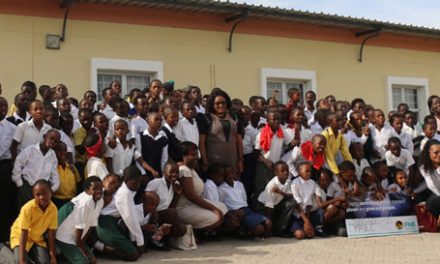
UNCCD COP11 ends with major agreement
The eleventh session of the Conference of the Parties to the UN Convention to Combat Desertification (COP11) ended last Saturday with several major breakthroughs.
The Science Policy Interface (SPI), a mechanism that scientists have long called for to enable them to communicate scientific findings to policy-makers, was established.The SPI’s functions are often compared to the Intergovernmental Panel on Climate Change or the Intergovernmental Platform on Biodiversity and Ecosystem Services, but it will be structured differently.
Parties confirmed the value and future of the UNCCD Scientific Conferences, after holding the first two conferences as “special sessions.” To fast-track the start of the third Conference, which will be held in early 2015, the Republic of Korea contributed US$100,000, as part of the 2013 Changwon Initiative implementation plan.
The Parties agreed to set up an Intergovernmental Working Group on the follow-up to the outcomes of the UN Conference on Sustainable Development (Rio +20), with three key tasks: to identify a science-based definition of land-degradation neutrality in the drylands; to develop options that parties may consider to strive to achieve land-degradation neutrality; and to advise the Convention on their implications for its current and future strategy and programmes.
“By all accounts COP11 is a resounding success and has lived up to its motto: ‘A stronger UNCCD for a land-degradation neutral world’,” said Luc Gnacadja, outgoing Executive Secretary of the UNCCD. The COP “has taken concrete steps to make the UNCCD the global authority on science relating to desertification, land degradation and drought. We have moved away from a focus on process towards real substance,” Gnacadja said. Uahekua Herunga, Minister of Environment and Tourism, said “COP11 has indeed strengthened the UNCCD as an agent of sustainable development.” He applauded the Parties for moving towards the establishment of a science policy interface.
Following institutional reforms undertaken at COP10 that consolidated the management of the Convention’s Global Mechanism and secretariat, COP11 decided to co-locate the two in Bonn, Germany, with a liaison office in Rome, Italy.
Hon. Herunga issued the “Namib Declaration on a stronger United Nations Convention to Combat Desertification for a Land Degradation neutral world,” which calls on stakeholders to commit to enhance sustainable land management and improve livelihoods at all levels.
“Important decisions were taken at COP11 that will have positive impacts going forward,” Gnacadja said citing the alignment of the national action programmes with the 10-Year Strategy as well as adjustments to the way parties report progress under the Performance Review and Assessment of Implementation System. Over 3000 delegates, including 45 ministerial participants, attended the two-week COP. The next COP will be held in Turkey in 2015.











































